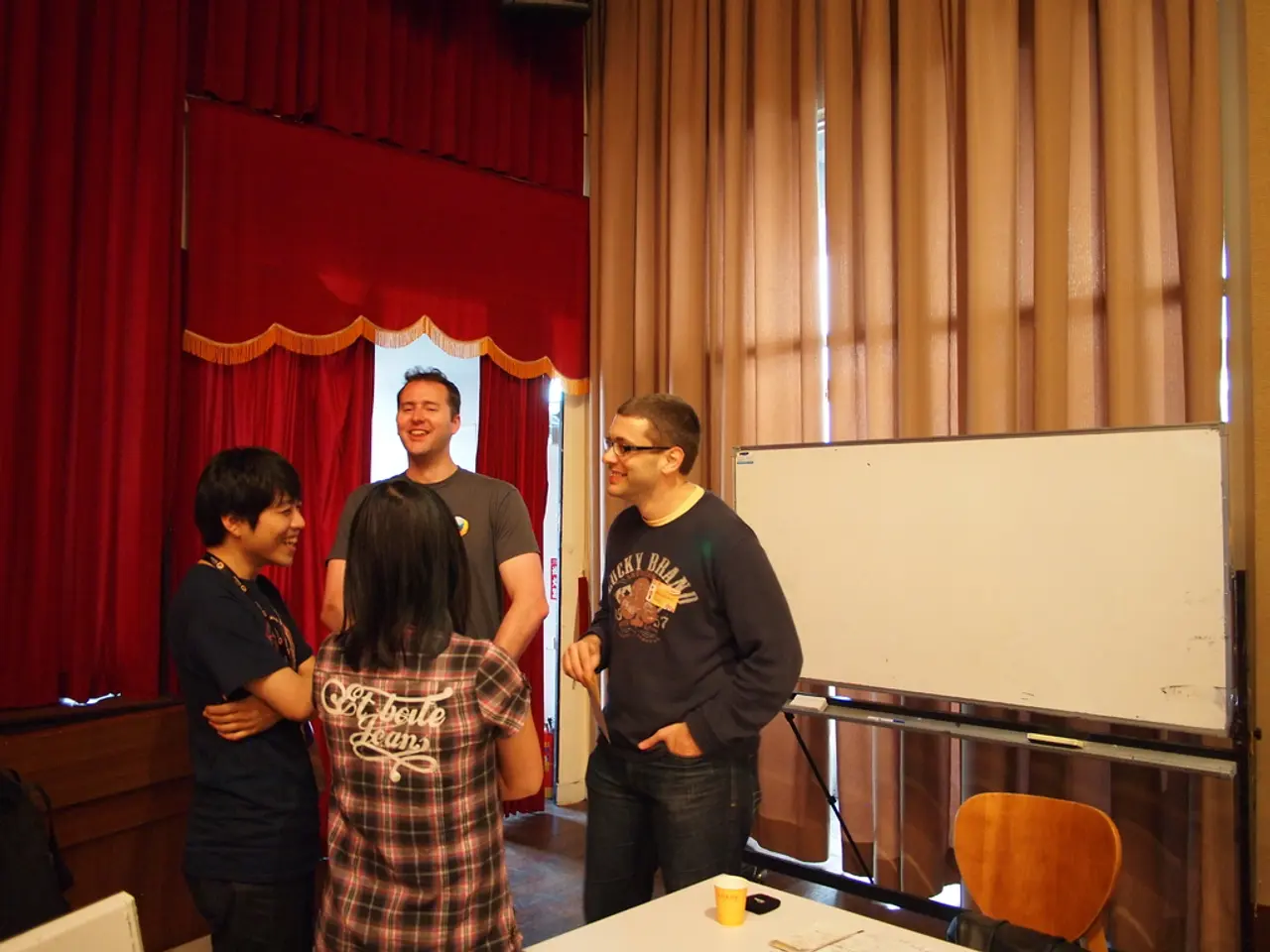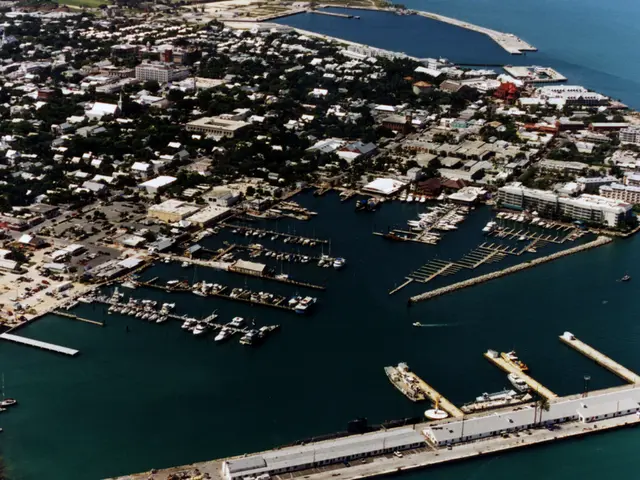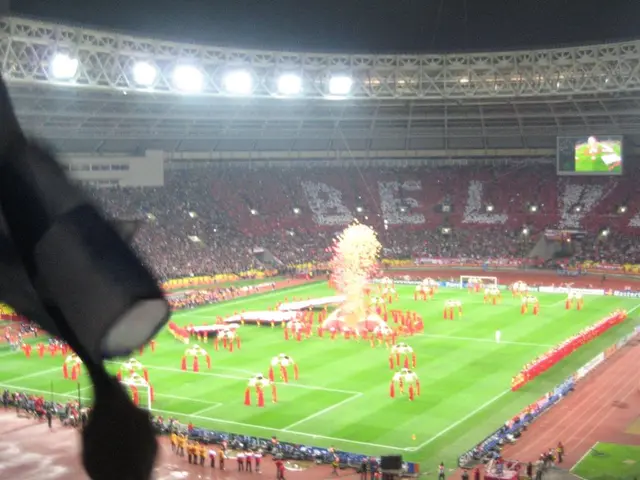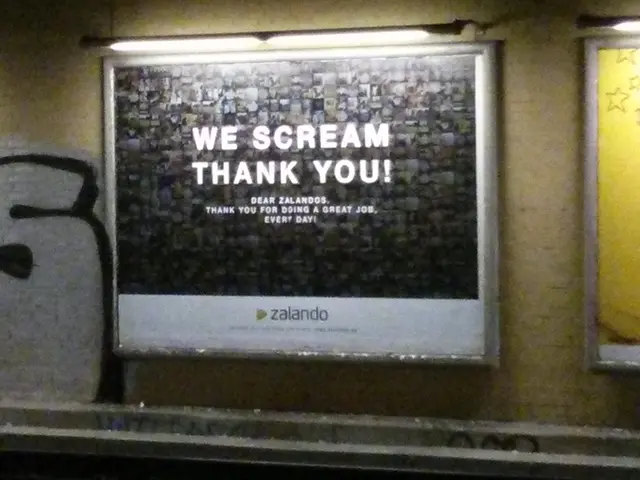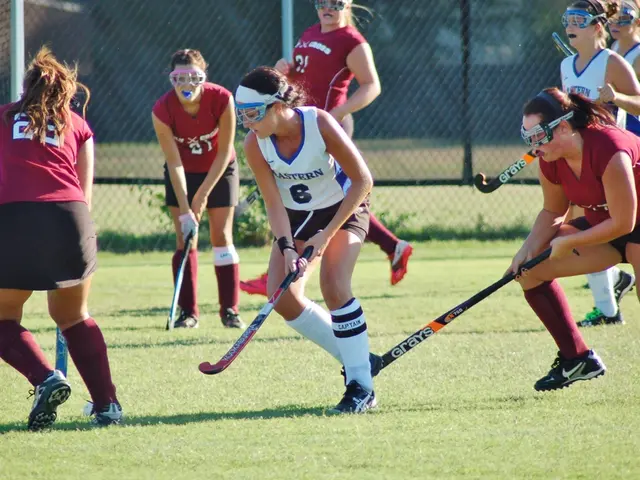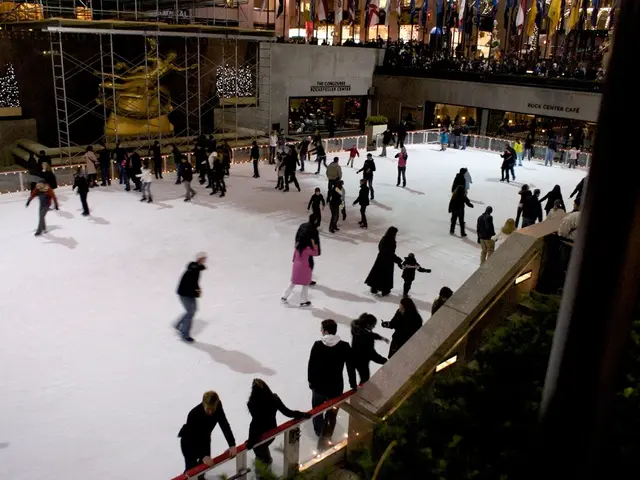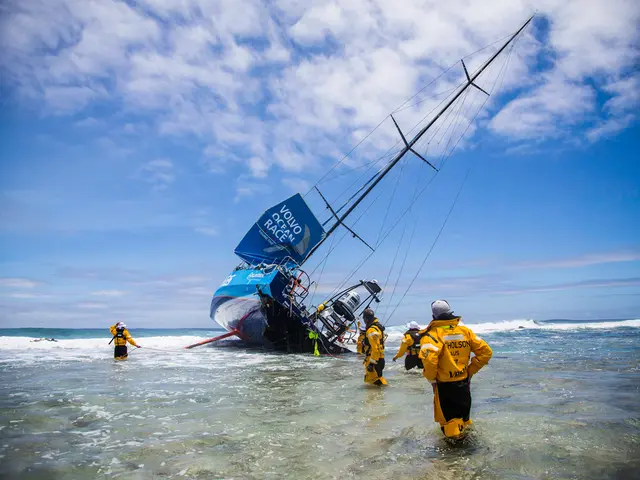French President Emmanuel Macron calls for a ceasefire in Ukraine, while Ukrainian President Volodymyr Zelensky insists on involvement in discussions between the United States and Russia.
In recent developments, French President Emmanuel Macron, Ukrainian President Volodymyr Zelensky, and other European leaders have held discussions regarding the ongoing conflict in Ukraine. However, previous talks between Ukraine and Russia have stalled, leaving the situation complex and cautious.
President Zelensky has shown a willingness to engage in negotiations, expressing his desire to meet with both Vladimir Putin and former U.S. President Donald Trump to discuss and commit to a ceasefire. His priorities include stopping casualties, reaching a ceasefire, holding a leaders’ meeting for a lasting peace, and securing long-term support from the U.S. and European partners [1].
However, Zelensky has refused to concede to Russian demands that Ukraine withdraw from Donetsk, Luhansk, and Crimea in exchange for a ceasefire and freezing lines, underscoring Ukraine’s red lines against territorial concessions or limiting its military capabilities [2][4].
On the other hand, President Putin has proposed a ceasefire framework that may allow Russia to pause strikes temporarily to stockpile weapons but resume intense offensives afterward. Putin's demands reportedly involve Ukraine withdrawing from key occupied regions, including Donetsk and Crimea, and freezing frontlines in Zaporizhia and Kherson oblasts, although some details remain unclear and disputed [1][2]. Putin has also refused direct talks with Zelensky and insists on recognition of "new territorial realities" as part of any settlement [4].
President Macron has not detailed his explicit reaction to these developments, but European officials have been actively involved in clarifying and responding to Putin's ceasefire demands through intermediaries like Witkoff, reflecting ongoing diplomatic efforts from the European side [2].
There is broad caution among U.S. and Ukrainian officials about ceasefires being a strategic pause for Russia to regroup rather than a genuine step toward peace. Ukraine’s former Foreign Minister emphasized skepticism that Putin intends genuine peace, warning that a ceasefire might simply enable Russia to prepare for new offensives [4].
Analysts stress that a sustainable ceasefire should establish clear control lines, demilitarized zones, monitoring mechanisms, and safeguards against resumption of hostilities. Crucially, Ukraine rejects terms requiring demilitarization, neutrality, or abandoning NATO ambitions, which Russia demands but Ukraine considers unacceptable [3][4].
As diplomatic maneuvers continue, there are growing reports of a possible summit between U.S. President Donald Trump and Russian President Vladimir Putin. However, the Kremlin dismisses the possibility of Ukrainian President Volodymyr Zelensky joining the summit, prompting Zelensky to express a demand for a direct role in talks [5].
The situation deepens rifts over U.S. strategy within the G7 due to Putin's reaction to Ukraine ceasefire proposals. Despite these challenges, all parties remain committed to finding a resolution that preserves Ukraine's legitimate rights and guarantees its security and that of Europeans [6].
Trump, however, appears to have moved away from the requirement of a meeting between Putin and Zelensky for a summit, with Trump stating, "No, he doesn't" when asked directly if a meeting between Putin and Zelensky is needed [7].
Moscow has also demanded that Ukraine give up remaining territory and renounce Western backing, but the path to a peaceful resolution remains uncertain due to Moscow's resistance to direct talks with Ukraine [8].
France, meanwhile, has reiterated its full support for a ceasefire and peace talks between Ukraine and other parties, emphasizing the need for a resolution that preserves Ukraine's legitimate rights and guarantees its security and that of Europeans [9].
As the situation evolves, it is clear that the negotiations will require careful navigation and a commitment to finding a solution that benefits all parties involved.
- French President Emmanuel Macron, along with Ukrainian President Volodymyr Zelensky and other European leaders, have been engaging in discussions about the ongoing conflict in Ukraine.
- President Zelensky has expressed his desire to meet with both Russian President Vladimir Putin and former U.S. President Donald Trump to discuss a ceasefire and commit to a lasting peace, but has refused to concede to Russian demands that Ukraine withdraw from certain regions.
- International analysts stress that a sustainable ceasefire should establish clear control lines, demilitarized zones, monitoring mechanisms, and safeguards against resumption of hostilities.
- Despite the complexity and caution surrounding discussions, France has reiterated its full support for a ceasefire and peace talks, emphasizing the need for a resolution that preserves Ukraine's legitimate rights and guarantees its security and that of Europeans.
